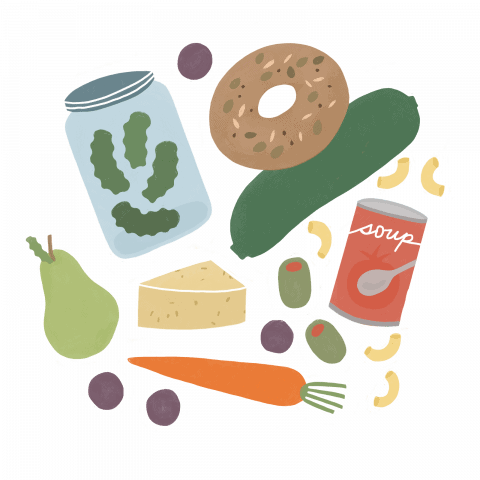If you live near a grocery store or have the time and money to commute to one easily, cost is probably your main concern when getting groceries. This is not the case for all, however, as there can be barriers to food access outside of the financial.
Since the closing of two major local food markets in 2015 and 2016, residents of central Saskatoon have seen the logistics of accessing a food source jump to the top of list, above any financial worries.
Enter the City Centre Food Cooperative — a non-profit organization in Saskatoon committed to alleviating the issue of food insecurity in the central area of the city through a weekly pop-up market, which is run with the help and feedback of the local community.
Mika Rathwell, the president of the City Centre Food Cooperative and a medical anthropology graduate student at the U of S, discusses that, even though the difficulty of accessing food in the area is not a problem they can solve alone, the cooperative contributes to the community by alleviating the symptoms of the issue.
“With our market, we aren’t solving any of the larger issues of food insecurity in the city, but we provide people in that neighbourhood with a walkable grocery store, even if it’s just once a week,” Rathwell said. “We don’t profit from the market, so we are able to keep our prices low, and that gives people in our neighbourhood … access to affordable food that they haven’t had since 2015.”
The City Centre Food Cooperative sprung up in response to the closing of the only two grocery stores in the central area of the city — Shop Easy Foods in City Park and the Good Food Junction in Riversdale, in 2015 and 2016 respectively.
Rathwell explains that these closures had far reaching effects.
“Twenty-five thousand people in Saskatoon lost geographic access to a grocery store,” Rathwell said. “Some of us can jump in a car, and it’s easy for us to get to a grocery store, but when you don’t have that opportunity, you have to factor in bus fare or pay for a cab, and it’s not always feasible.”
In the beginning, the group had a long-term goal of opening a community-owned grocery store, a plan that they have since abandoned. Rathwell explains that the cooperative model is sustainable in the long run because of the relationship they have with the community they service.
“As a group, we realized that grocery stores are a very difficult business to get into,” Rathwell said. “Cooperative models can work because people work together. The Food Cooperative is run for the benefit of those who use it — we are able to listen to the people who use our services about what we should bring in or what we could do to make it better.”
The local community also plays an important role in the financing of the pop-up markets. Rathwell explains that, even as a non-profit, the initiative would be unsustainable without the help they have received from the public.
“Some weeks, we do really well and we just lose five bucks, and some weeks, we lose a hundred dollars because it’s a slow week,” Rathwell said. “To finance our grocery store, we have fundraisers. We’ve been really lucky to have awesome support from our friends, from the community in Saskatoon and from businesses.”
Rathwell discusses that the cooperative is a good way for students to get involved in helping the local community, as well as a nearby locally-owned source of fresh, low-cost and healthy food.
“We love to see students come out to use our services or to volunteer,” Rathwell said. “We are very fortunate to have volunteer interest, but we could always use more.”
The City Centre Food Cooperative runs a pop-up market every Thursday at the Saskatoon Community Service Village at 101-506 25th Street East.
—
Ana Cristina Camacho / Staff Writer
Graphic: Jaymie Stachyruk
Leave a Reply